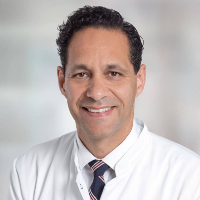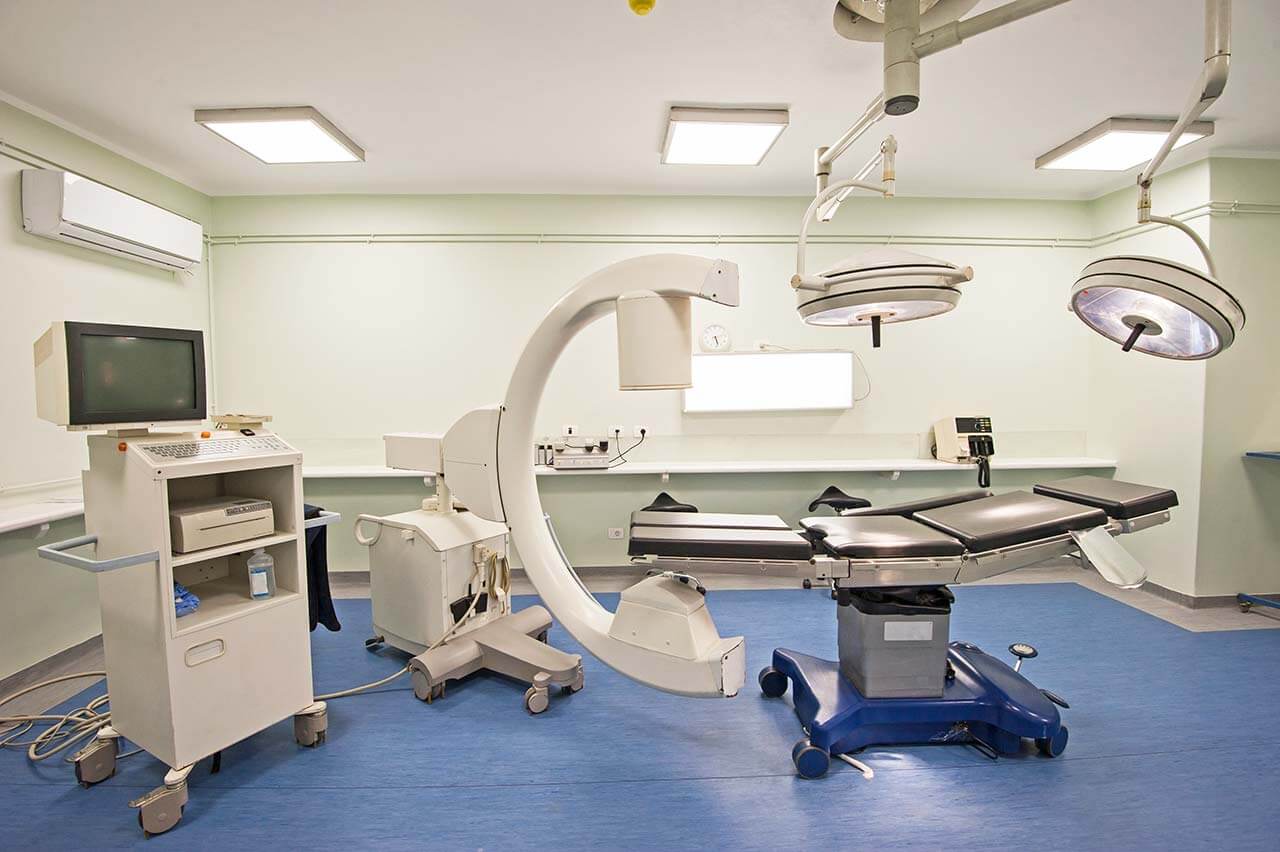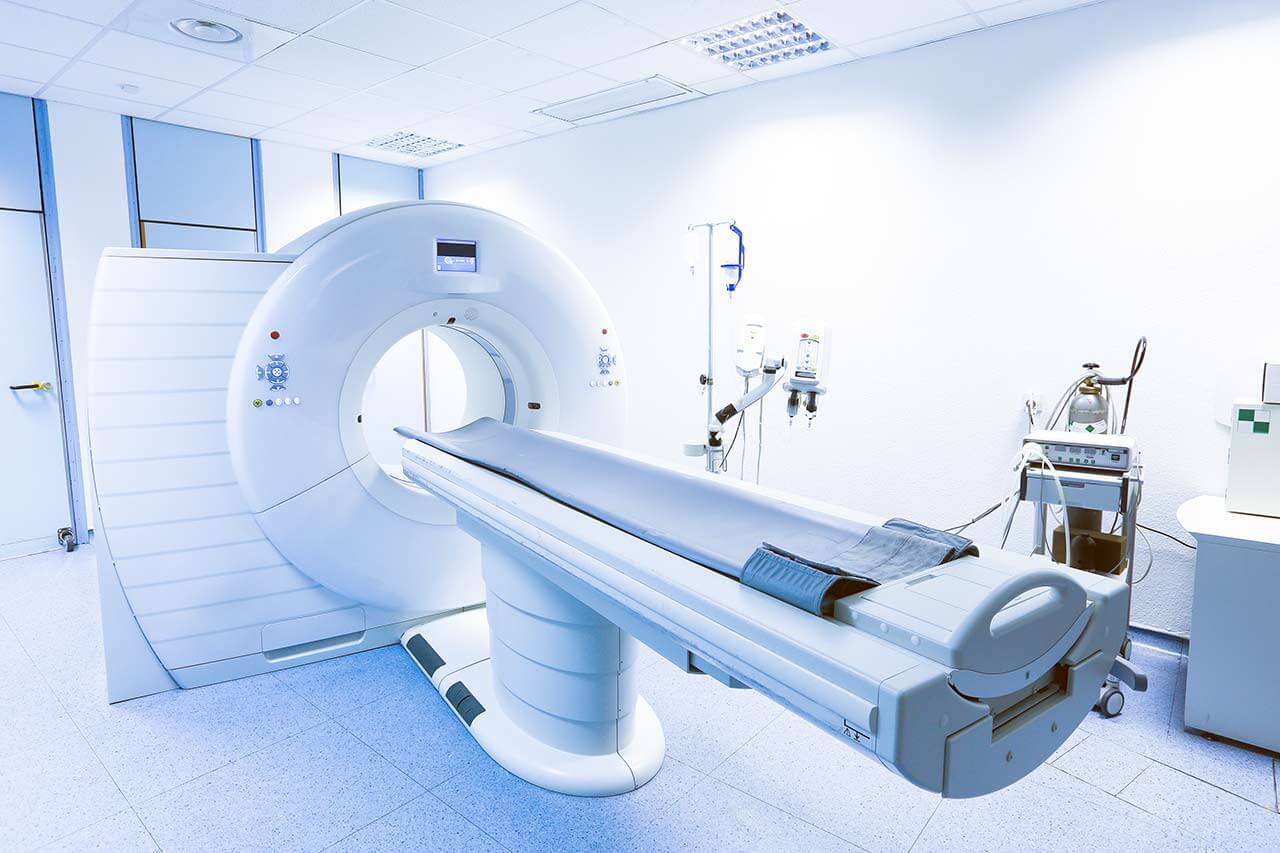
About the Department of General, Abdominal Surgery and Surgical Oncology at Helios Hospital Berlin-Buch
The Department of General, Abdominal Surgery and Surgical Oncology at the Helios Hospital Berlin-Buch offers the full range of services in these medical fields. Whenever possible, operations are performed using minimally invasive techniques, which are the gold standard of modern surgery. The outstanding quality of medical care is confirmed by numerous prestigious certificates, including certificates from the German Cancer Society, the German Hernia Society, etc. In addition, the department provides innovative hyperthermic intraperitoneal chemotherapy (HIPEC), which is available only in the most progressive clinics in Europe. The Head Physician of the department is Prof. Dr. med. Roger Wahba.
One of the key focuses of the department is the treatment of peritoneal tumors, abdominal metastasis and sarcomas. The basis of clinical practice is the use of the most sparing and at the same time the most effective therapeutic methods. The doctors of the department work closely with specialists in the field of chemotherapy and radiation therapy. Thus, each patient receives treatment according to the optimal, individually developed plan. Special treatment methods in this area include intraoperative electron radiation therapy (targeted destruction of cancer cells, which provides optimal protection for healthy tissue and neighboring organs), hyperthermic intraperitoneal chemotherapy (chemotherapy, during which the abdominal cavity is washed with a warm chemotherapeutic solution that kills the remaining tumor cells after surgery) and pressurized intraperitoneal aerosol chemotherapy (a special chemotherapeutic solution is injected into the abdominal cavity, after which it penetrates into all areas affected by the tumor). These treatment methods are used only in highly specialized leading clinics in the world.
Hepatobiliary surgery also occupies an important place in the work of the department. The doctors of this field treat liver, gallbladder and bile duct tumors. Before the appointment of a particular operation, the patient will undergo a CT scan, which allows to get a three-dimensional image of the organ and plan the intervention as accurately as possible. The therapeutic options in this area include tumor resection, radiofrequency ablation, transarterial chemoembolization, selective internal radionuclide therapy, stereotactic radiotherapy and many other treatment methods.
The department's range of medical services includes:
- Surgical treatment of abdominal tumors, metastasis and sarcomas
- Intraoperative electron radiation therapy
- Pressurized intraperitoneal aerosol chemotherapy
- Hyperthermic intraperitoneal chemotherapy (HIPEC)
- Surgical treatment of diseases of the thyroid gland, adrenal gland and pancreas
- Chronic pancreatitis
- Pancreatic tumors
- Adrenal tumors
- Thyroid tumors, including medullary cancer
- Nodular goiter
- Hyperthyroidism
- Goiter, including relapsing forms
- Malignant diseases of the parathyroid glands
- Hyperfunction of the parathyroid glands (hyperparathyroidism)
- Multiple endocrine neoplasia in men
- Minimally invasive video-assisted surgery (MIVA)
- Surgery using bilateral axillary-breast access
- Hepatobiliary surgery
- Surgical resection
- Radiofrequency ablation
- Transarterial chemoembolization
- Selective internal radionuclide therapy
- Stereotactic radiation therapy
- Intraoperative radiation therapy
- Perioperative chemotherapy
- Surgery for inguinal hernias and anterior abdominal wall hernias
- Classic open surgery
- Minimally invasive surgery
- Surgical treatment of bowel disease, fecal incontinence
- Inflammatory bowel disease
- Crohn's disease
- Ulcerative colitis
- Rectal and anal diseases
- Anal fissures
- Anal fistula
- Anal carcinoma, colon and rectal cancer (treatment within a certified center)
- Perianal venous thrombosis
- Diverticulitis
- Hemorrhoids
- Condylomas/genital warts (surgical removal or laser therapy)
- Rectal prolapse (minimally invasive anal surgical procedure with direct access or access through the abdominal cavity)
- Pilonidal sinus
- Impaired bowel movements
- Rectocele
- Pelvic floor muscle disorders and fecal incontinence
- Sling procedures
- Neuromodulation (stimulation) of the nerve roots of the sacral spinal cord
- Artificial urethral sphincter implantation
- Surgery for rectal prolapse and fistula
- Muscle relaxant injections for irritated bladder and pelvic floor muscle tension
- Bladder enlargement
- Artificial urine diversion
- Malignant tumors of the small, large intestines and rectum
- Inflammatory bowel disease
- Surgical treatment of inflammatory processes of the cecum and gallbladder (mainly minimally invasive surgery)
- Gallstones
- Appendicitis
- Endoscopic and minimally invasive surgery
- Other treatments
Curriculum vitae
Since August 2023, Prof. Dr. med. Roger Wahba has been heading the Department of General, Abdominal Surgery and Surgical Oncology at the Helios Hospital Berlin-Buch. Prior to this, the specialist held the post of Senior Physician in the Department of General and Abdominal Surgery, Surgical Oncology and Transplant Surgery at the University Hospital Cologne (since 2011), where in 2015 he introduced a special program for the treatment of peritoneal cancer into clinical practice. Since 2018, he has also served as Director of the Liver Cancer Center.
Prof. Roger Wahba graduated from the Faculty of Medicine at the University of Cologne. In 2011, the specialist was board certified in surgery. In 2014, he also successfully completed board certification in abdominal surgery and advanced training in transplant surgery. In 2016, the doctor received additional qualifications in special abdominal surgery. Prof. Wahba has exceptional experience in the field of surgical oncology, having been awarded the title of surgical oncology specialist by the European Union of Medical Specialists (UEMS).
Photo of the doctor: (c) Helios Klinikum Berlin-Buch





